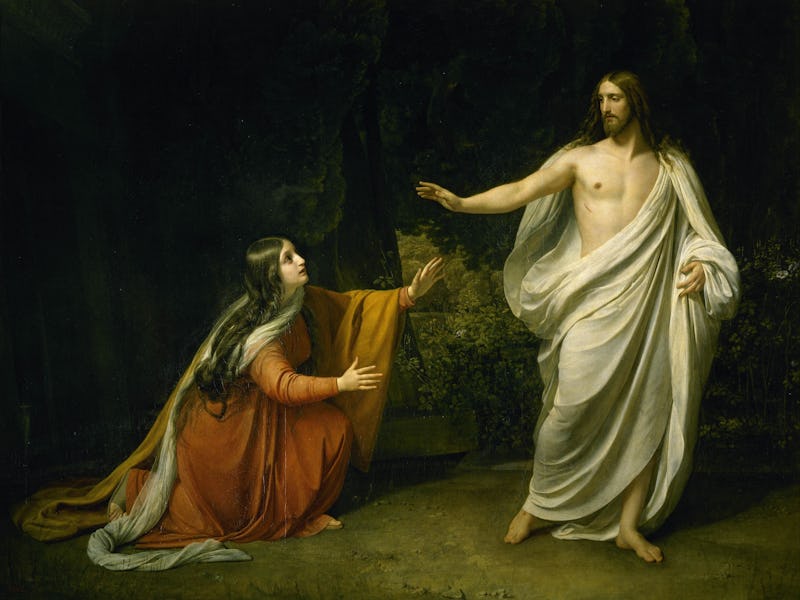Scientists Will Attempt to Resolve 'Gospel Of Jesus' Wife' Debate
It's like we're living in a Dan Brown novel.

The business-card-sized scrap of papyrus known as the “Gospel of Jesus’ Wife” is making news again after being dismissed repeatedly by scholars. The controversial fragment, containing Coptic text that reads “Jesus said to them, ‘My wife …’” and potentially refers to Mary Magdalene, is undergoing another round of analysis at Columbia University to verify the actual age of the ink used. In addition, new documents shedding light on the origins of the papyrus have recently surfaced.
The papyrus was first discovered by Harvard University professor Karen King in September 2012. Its potential implication, which could cast doubt on the beliefs of some two billion Christians worldwide, incited backlash from religious and scientific figures alike. It is, in short, a very controversial scrap of paper. It’s also very old.
King stood by her claim that the scrap was a plausible relic, which was backed up by a 2014 Harvard Theological Review analysis that estimated the papyrus was about 1,200 years old and made with ink similar in consistency to inks used around that time. Now, researchers at Columbia University are apparently running a new round of tests on the ink, though they are trying to keep their heads down so as not to prematurely incite a riot.
Heated debate also surrounds the origins of the mysterious papyrus. Its actual owner is anonymous, known only to King, though she has revealed that this person got the fragment, together with five other Coptic papyrus fragments, from a German named Hans-Ulrich Laukamp in 1999. Whether Laukamp actually owned the gospel is a different story: After Laukamp’s death, his representative claimed that his late boss had no interest in antiquities and, because he lived in West Germany, wouldn’t have been able to acquire the documents from their supposed East German source in the first place.
LiveScience recently reported finding examples of Laukamp’s signature in Florida public databases, sparking interest in verifying the signature on the contract he reportedly signed in his deal with King. Verifying its origins won’t prove whether or not the papyrus is authentic, but checking the anonymous owner’s story could, at the very least, help scholars decide whether the scrap is worth any more of their time.